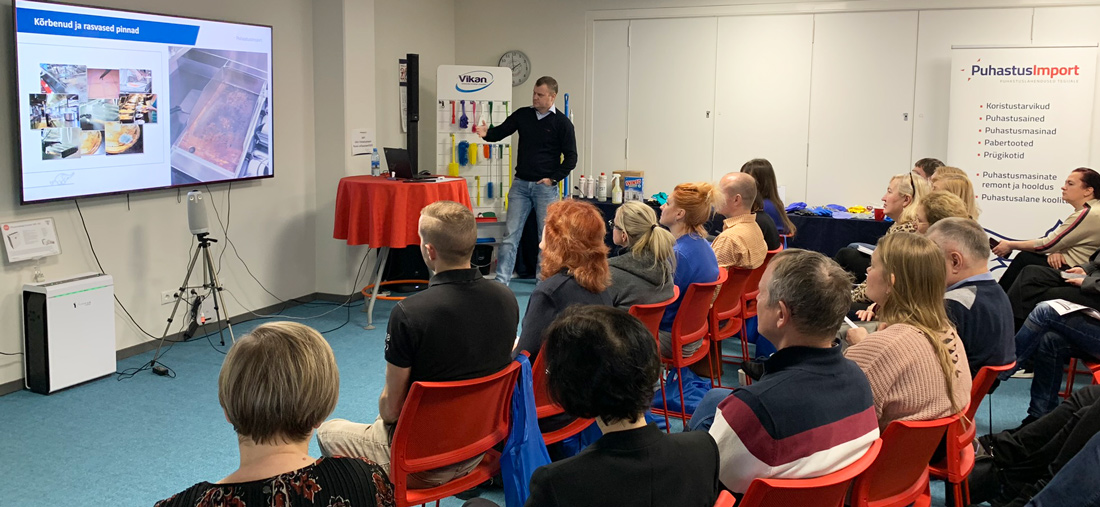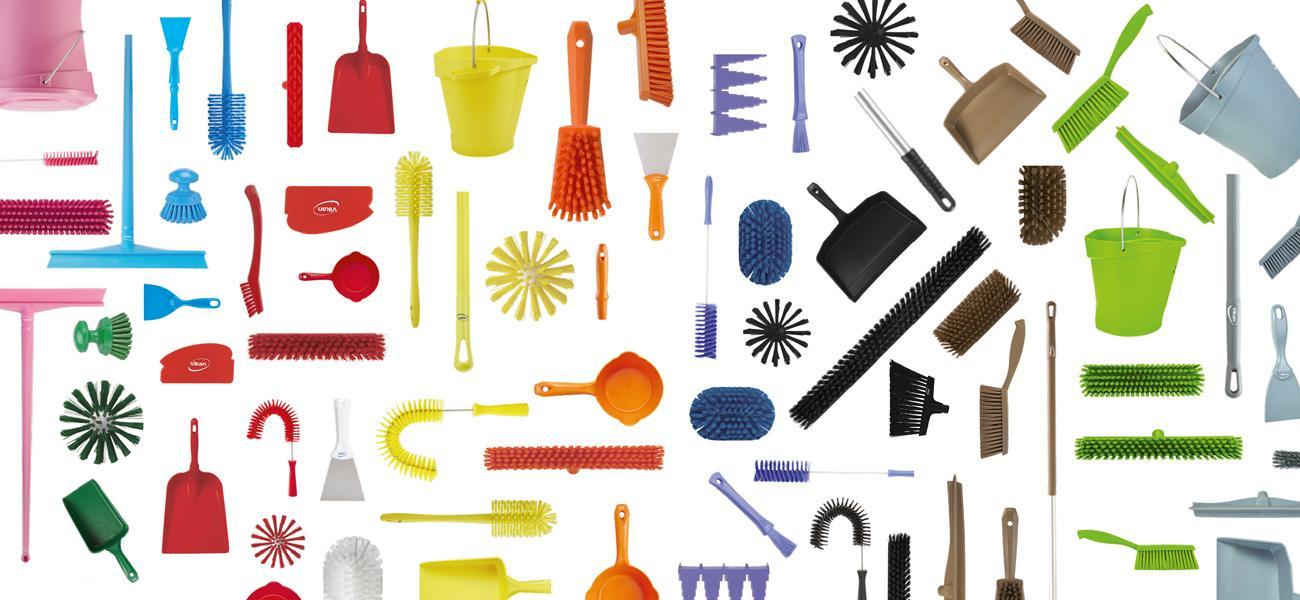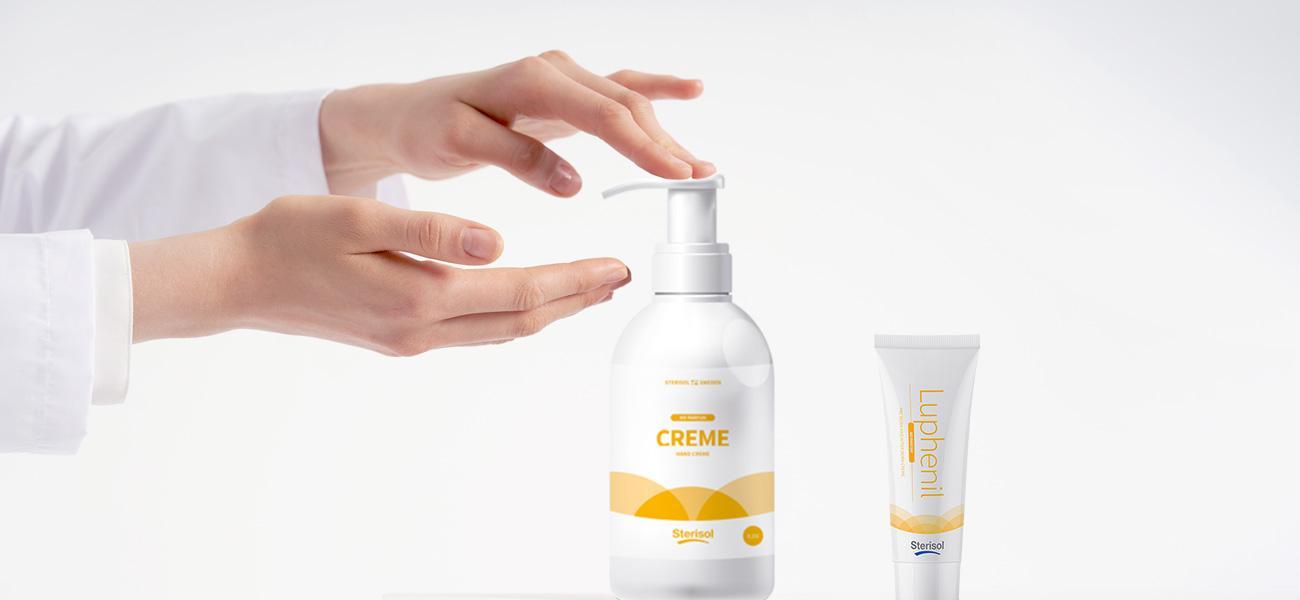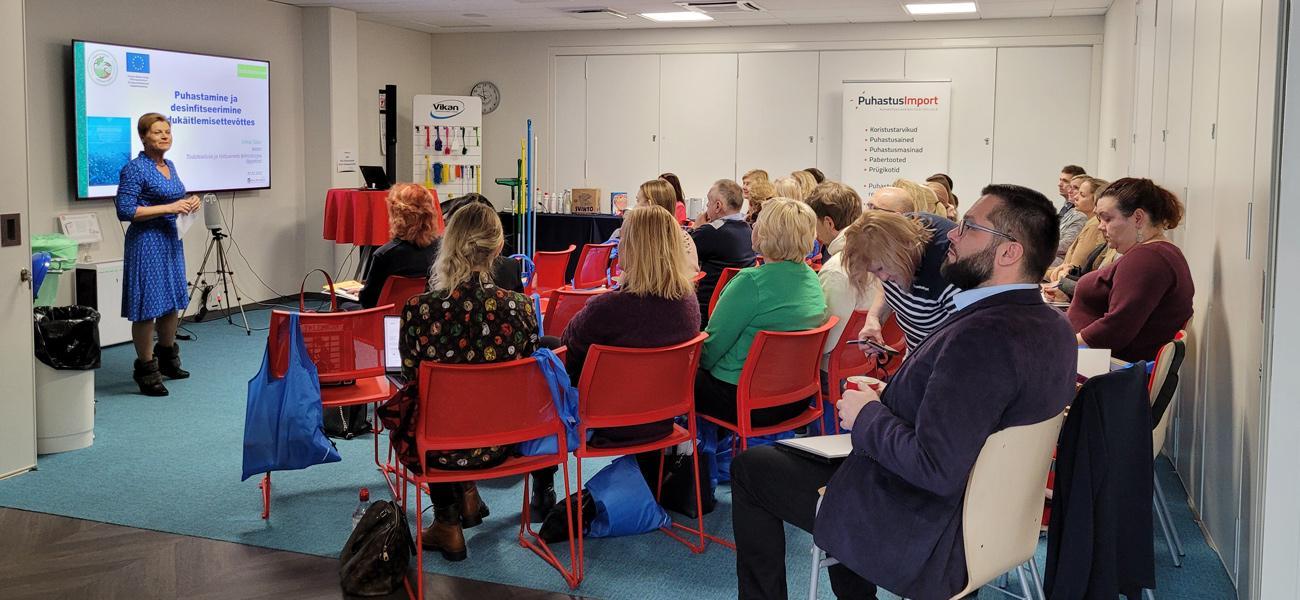
Seminar: ‘Cleaning at food industries’
On 7 February, we were honoured to host at the Academy of Puhastusimport an interesting and educational seminar ‘Cleaning at food industries’ which was organised by the Estonian Food Industry Association to its members. Cleaning and disinfection of production surfaces is an important part of the daily production process in the premises of a food business operator. Knowledgeable cleaning and using proper tools are vital for ensuring safety and following high hygiene standards.
Seven experts of their respective fields with years of experience in the food industry shared their knowledge at the seminar. It was mentioned several times that each food industry is different and is facing very different daily challenges. Quite often, several solutions must be tried and different cleaning agents and tools tested to achieve the best result. The sector is developing and novel solutions and increasingly ergonomic and efficient tools help to save the time of the worker and protect their health. Modern cleaning machines and developing robot technology, however, allow to achieve even better results.
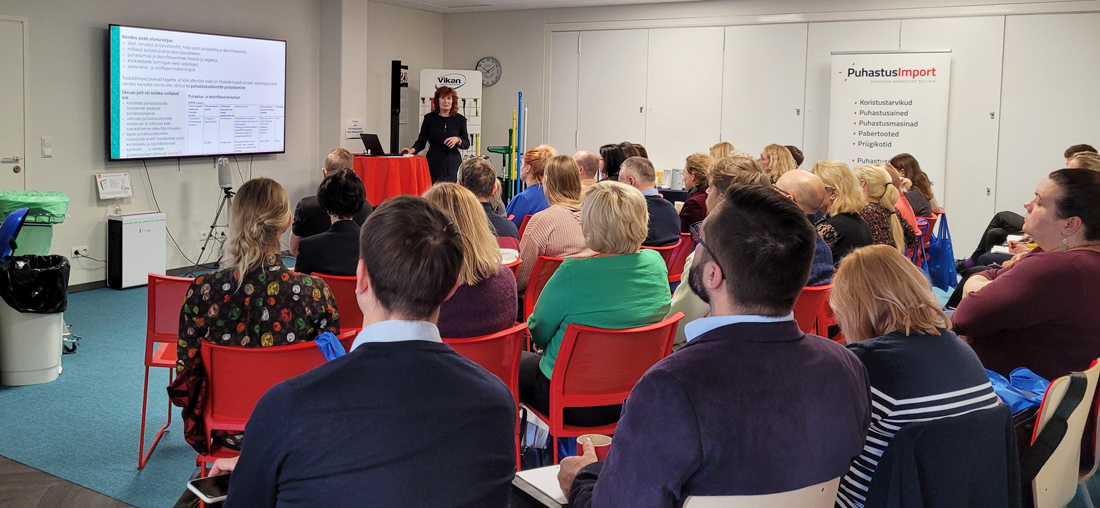
Vilma Tatar – Instructions for the cleaning and disinfection of the machinery, tools, and surfaces in the food industry
Vilma Tatar, lecturer of the Chair of Food Science and Technology of the University of Life Sciences, gave us a thorough overview of the instructions for the cleaning and disinfection of the machinery, tools, and surfaces in the food industry. Different types of dirt were also discussed, as well as the issue of how and in which order different dirt should be removed and why it is important to switch the disinfectant every once in a while.
Ally Scott – How to choose, use, and maintain tools in the food industry?
Ally Scott, regional expert manager of Vikan AS, producer of food industry supplies, provided practical advice on how to choose, use, and maintain tools in the food industry, what to avoid and how to always ensure cleanliness and hygiene. In the Vikan brushes, the bristles are securely ‘welded’ to the base and will thereby not end up in the food.
Many materials (such as wood and animal hair) are prohibited in the food industry. If a material cannot be disinfected, microbes may spread, resulting in cross-contamination. Hygiene cannot always be guaranteed even if a product is made of a synthetic material, though. An air bubble in the material or a microscopic fraction in plastic may be an ideal breeding ground for microbes. The Vikan hygiene collection products are made of a material which is compliant with the requirements of the FDA. The design is based on the colour codes and peculiarities of the food industry and the products are resistant to different cleaning chemicals and to high temperatures.
Helge Alt – Ergonomic cleaning on the basis of international studies
Helge Alt, chairman of the board of Puhastusekspert OÜ shared a few tips on how to work more ergonomically and introduced the results of an exciting study about the daily lives of cleaners. Helge Alt highlighted the occupational diseases and accidents which often affect cleaners and gave advice on how to increase the efficiency of work and reduce the stress on muscles. Skills and knowledge are crucial for cleaners to cope with their workloads – each and every move must provide maximum value in cleaning.
Fadi Hamade – Solutions for skin problems in the food industry
Fadi Hamade, quality manager of Sterisol AB gave a presentation on skincare-related challenges in the food industry. How to protect your hands and skin from damage if you need to work in excessively humid, cold, or frequently changing conditions?
- Apply a cream before and after work
- Wear protective gloves
- Do not put on the gloves before your hands are completely dry
- Change the gloves frequently
Georgi Nikolov – Personal protective equipment in the food industry – best practices
Georgi Nikolov, sales manager of Ansell Healthcare, gave an interesting presentation of the best practices of using personal protective equipment, bringing examples from real life. Georgi introduced protective gloves of different materials and explained why all gloves are not suitable for handling food and which materials are made for protecting hands from sharp tools, punctures, or cold.
Tauno Abel – Smart solutions and supplies for the food industry
The sales manager of Puhastusimport who has many years of experience in his field shared his experience and stories of the cases which he has come across in the food industry. Tauno introduced new as well as tried and tested supplies and machines which often make the work faster and more efficient. The best knowledge comes from experience and Tauno has plenty!
Rinel Pius – The experience of SOL Baltics
The seminar was closed by Rinel Pius, the always inspiring head of SOL Baltics, who shared with us the experiences of SOL from the Estonian and Nordic food industries, as well as interesting ideas about the management and functioning of teams. The maintenance service provider SOL applies a freedom- and responsibility-based management culture, prioritising the development of each individual and coaching management which supports this.

